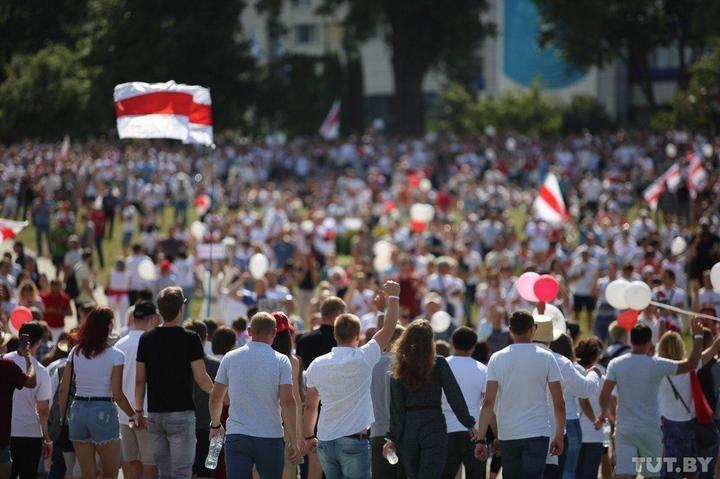The presidential election in Belarus and the mass protests that followed are raising many questions in Ukraine.
Some compare the situation in the neighboring country to the Ukrainian „Revolution of dignity,“ some are reminded of the „Orange Revolution“ of 2004, others state that there are more differences than similarities.
So what is actually happening in Belarus? Is it a riot against Russia? Can we expect the country to drift towards Europe? What are the protesters' methods? Can they count on support from the EU and from Ukraine?
European Pravda has published answers to the most pressing questions, which we have translated.
Why is everyone convinced that the election results have been falsified?
From the very onset of the presidential race, the Belarusian government did everything in its power to show that it is not interested in a fair evaluation of votes.
This time it has gone further than refusing to accept OSCE observers and filling the election committees with government representatives, which was already done during the previous election.
Another proof of electoral fraud is due to the opposition's candidates' request to fold the ballots in a particular way to indicate the voters' support. Numerous photographs show the majority of ballots folded in this way, while the official results state Lukashenka's victory.
All voters for Tikhanovskaya agreed to fold the ballot into 4-6 times. So you can see how people voted.
And you can see pic.twitter.com/C1MUEwqf4r
— Franak Viačorka (@franakviacorka) August 9, 2020
Besides, Belarus opposition media has recently released a series of recordings of conversations in which the local administration representatives were convincing the members of the election commission to „change the difference between the third and the fourth candidate“ (that is, between Lukashenka and Tsikhanouskaya).
- Read also: “You all know your numbers”: polling station rehearsed announcement of Belarus dictator Lukashenka’s “victory”
- Jailed for 15 days for exposing Lukashenka’s rigged elections: the story of Marta, one of 150 arrested observers
Is Russia supporting Lukashenka or the opposition?
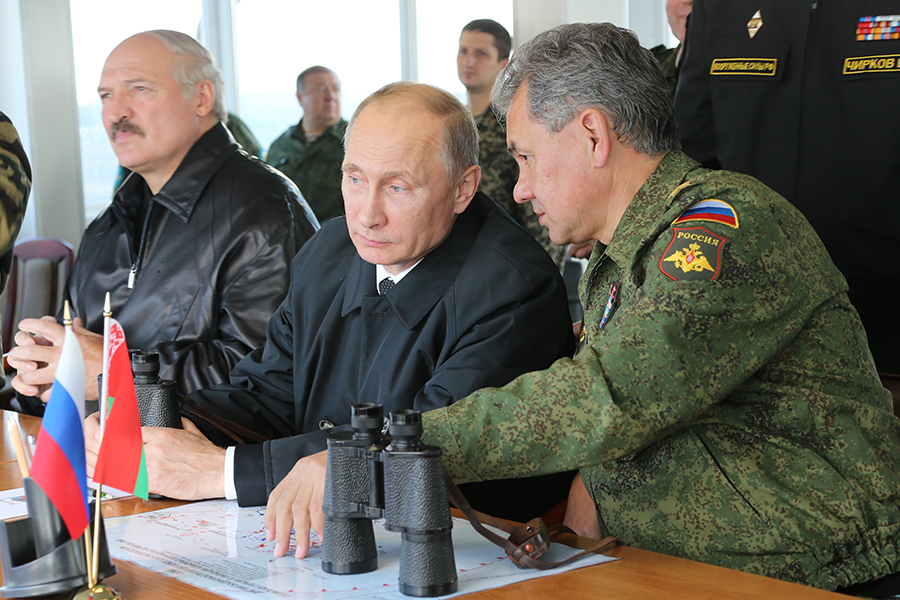
Although some Russian politicians claimed that the Belarusians might be tired of Lukashenka and even admitted the possibility of electoral fraud, Moscow has clearly demonstrated its support for the long-standing president.
Importantly, at the same time, critical voices can be heard from the Russian parliament, in particular, from Putin's party United Russia, emphasizing Lukashenka's „weakness“ and the fact that the Belarusians „are tired.“
The present situation in which Belarus is swallowed by a wave of violence and Lukashenka is confronted with resistance from society is beneficial for the Kremlin.
Keeping the power for Lukashenka can only come at a price of violent oppression of protests, which would simultaneously weaken his position inside the country and lead to his international isolation. This would prevent Minsk from pursuing different political directions and improving relations with the EU and the USA, which had always annoyed Russia.
In its turn, a scenario in which Lukashenka is overthrown and a period of confusion ensues before power is redistributed can provide Russia with new possibilities of widening its influence (for instance, by introducing and promoting a pro-Russian candidate or even by enforcing integration in a violent way), but it can also bear certain risks.
Are there reasons to believe that Belarus will change the direction of its foreign policy if Lukashenka is overthrown?
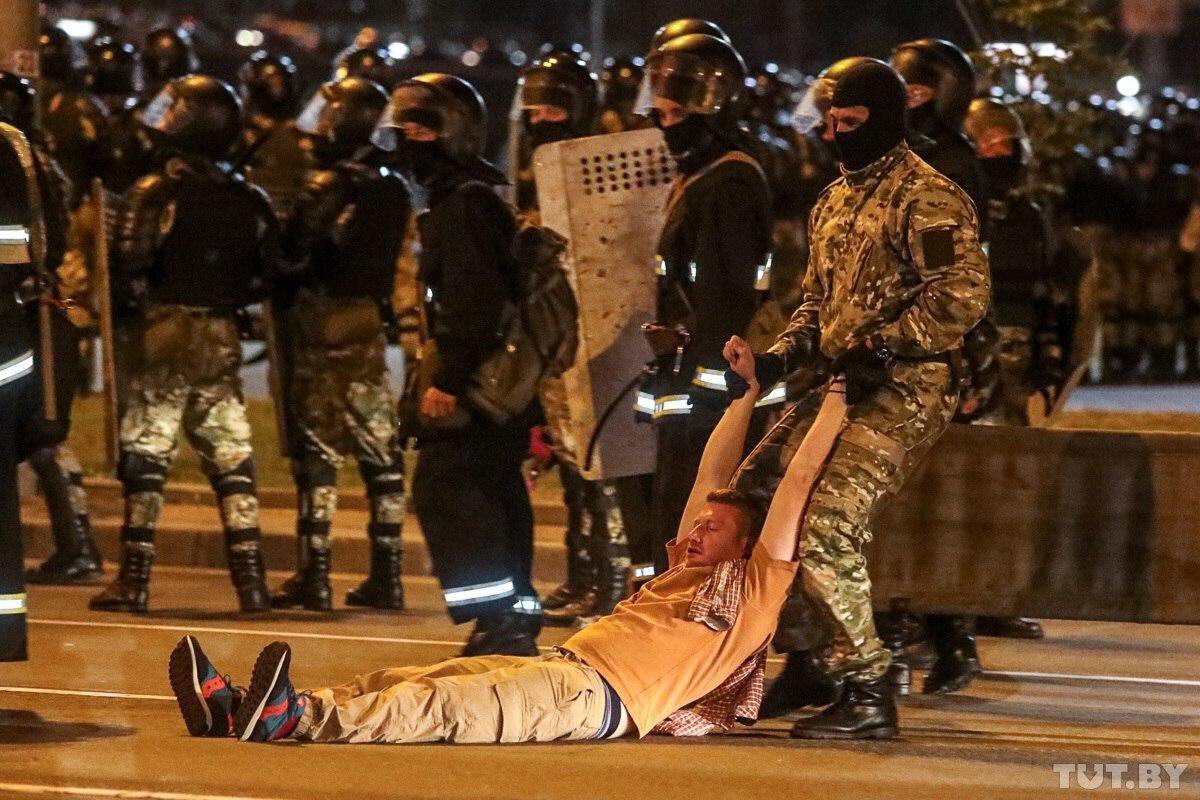
Sooner or later, after the upheaval ends, a new president will be elected, and the winner of an internationally recognised election will have a chance of improving Belarus's relationship with the EU. Even a pro-Russian president will be forced to take into account society's wishes more than it was the case with Lukashenka in power.
What these wishes will be is a different question, since the interest of maintaining a friendly relation with Russia remains rather strong in Belarus.
Therefore, a radical change from a pro-Russian to a pro-western development is not to be expected in near future.
Nevertheless, the level of integration might be altered. Minsk might officially cancel its membership in the Union State of Russia and Belarus, a disputed agreement from Lukashenka's early days in office.
In the long-term perspective, however, possibly over several election cycles, Minsk might theoretically change its political orientation. This is all the more probable because the restoration of the possibility of open political discussions, a reinforcement of cooperation with the west, attraction of foreign investors and last but not least the media might influence the public opinion in Belarus.
Is it possible that the events in Crimea or in Donbas will repeat themselves in Belarus?
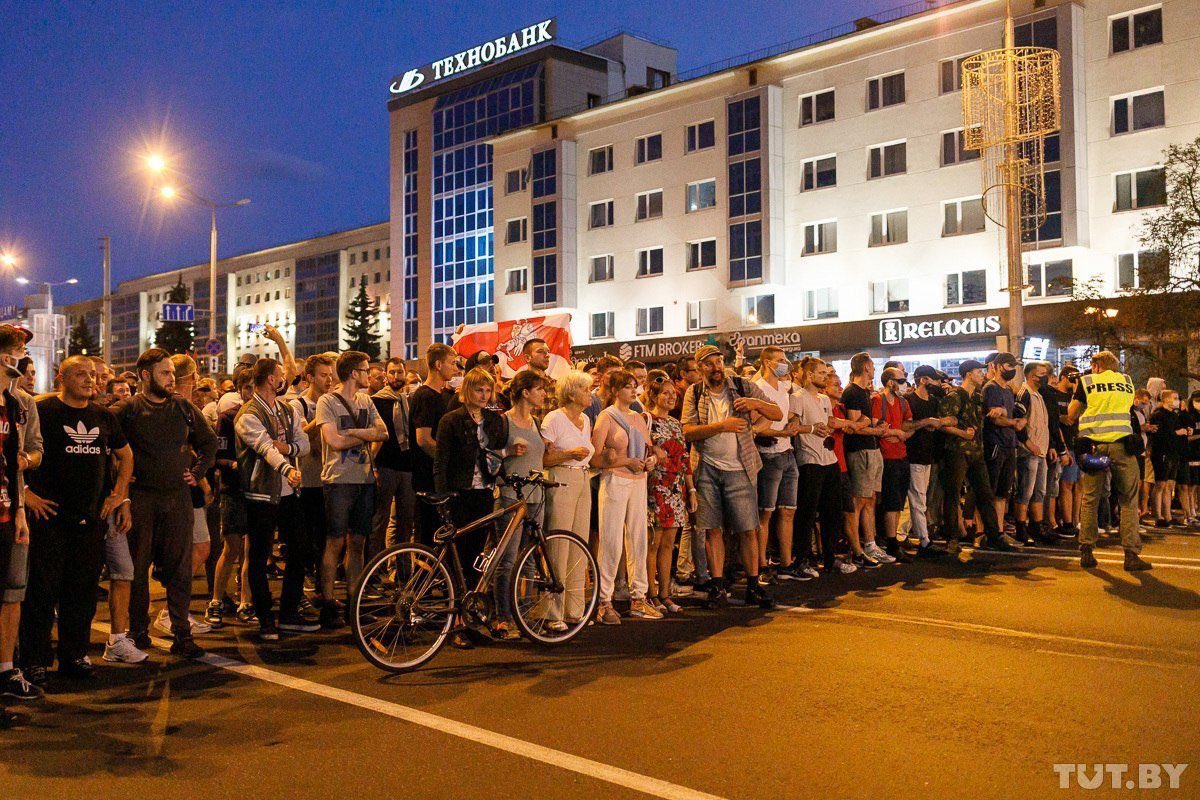
No. At least not in the same way.
One of the most important differences between Belarus and Ukraine is that there is no particular region in Belarus supporting the current government. The level of rejection for Lukashenka is considered to be roughly the same in Viciebsk in the East and in Brest in the North of the country.
There is, moreover, no clearly pro-European region, such as Halychyna in Ukraine.
Hence, in the hypothetical event where Putin might try and forcefully annex Belarus it would concern the whole country from east to west.
How justified is the comparison of the current protests with the Ukrainian Maidan?
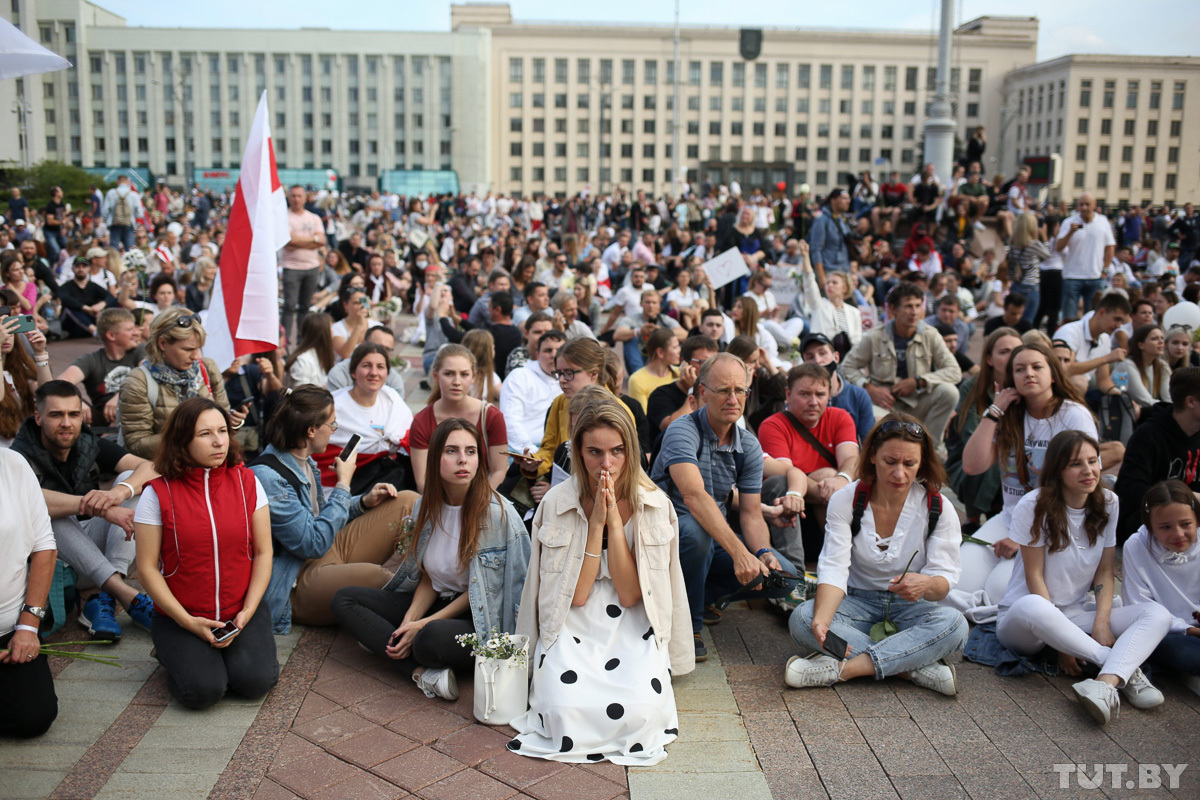
Mostly unjustified. The two societies are too different, and so are the countries, including their power constellations. The development of the protests also differs significantly from the events in Ukraine in 2004 and 2013-14.
Incidentally, for Belarusians obtaining information from Russian sources Maidan tends to have a rather negative connotation.
Although the protest comes as a consequence of national awakening with the historical white-red-white flag as its symbol, it does not reflect the country's geopolitical choice and is only concerned with Lukashenka's dictatorship.
What is more, some protesters sport the official red-green flag of the country introduced by Lukashenka in 1995. It is clear that the matters of ideology and symbols representing it are not the primary concern for many Belarusians.
Another fundamental difference is the absence of a powerful opposition and of a strong political figure leading the protests and entering a political dialogue with the western partners as well as with the government. During the Ukrainian Revolution of Dignity there were several public figures fulfilling this role, even though they were not universally trusted.
The absence of a leader and of a centralised structure is significantly weakening the protests, but on the other hand the chaotic aspect makes it more difficult to suppress them using force.
A further difference is that in Belarus there are no alternative protests and nothing similar to the Ukrainian „anti-Maidan“. In fact, Lukashenka's supporters seem to be invisible, with the exception of the Special Forces. It is a further argument proving that the country is united in its wish of ending the dictatorship.
[Admittedly, since the publication of this article, a rally of Lukashenka's supporters was held in Minsk on 16 August; however, it was possible thanks to the centralized transportation of people from the regions, many of whom state employees, to Minsk. How many of them are true Lukashenka supporters remains unknown.
Despite the bussed-in counter-protesters, the pro-Lukashenka rally (L) is markedly smaller: 31,000 at most. The anti-regime one (R) numbers 220,000 - a record in #Belarus' independent history, @tutby calculates.
Strange for a politician claiming 80% support 🤔#StandWithBelarus pic.twitter.com/JiTY8PmZ99— Euromaidan Press (@EuromaidanPress) August 16, 2020
-Ed.]
The protests themselves are so different from those happening in Ukraine that this deserves a separate question.
What is special about the protests in the streets of Belarus?
As opposed to Ukraine's Euromaidan in 2014 and the Orange Revolution in 2004, there is no actual Maidan in Belarus, that is, there is no centre. This proved itself effective in the very first night after the election.
Surely, by now everyone has heard about the excessive violence of the Special Forces in Belarus displayed during arrests, while forcefully dispersing demonstrations, but also in treating prisoners. In the conditions where police officers might not hesitate to drive their cars into the crowd and can easily ruin the barricades a local chain of protests happening all over the city is certainly more effective.

An important consequence of such localisation is that more people are now participating in the protests. Even for someone who might initially have had no intention to demonstrate it is difficult to stay silent and maintain that they are not concerned with politics if one's neighbors are being cruelly beaten up just outside one's window.
In the same time the tactics of the demonstrations seems to change constantly and rapidly.
Another crucial idea is the nationwide strike.
How effective can these tactics be?

The idea of a strike as an effective method to pressure the authorities might seem strange for Ukrainians working in private companies. But the main employer of people in Belarus is the state.
According to the Belarusian statistics, in the beginning of 2020, approximately 44% of Belarusians were working for the state. Over a half of them were employed in agriculture and industry, areas responsible for the major influx of foreign currency into the country. A strike at some of the main industrial companies can already become a painful blow to the stability of Lukashenka's regime.
At the moment major companies such as BelAZ (Belarusian Automobile Plant), MAZ (Minsk Automobile Plant) and Grodna Azot, all of which are owned by the state, are known to take part in the strike.
However, in order to be successful, the strike must last at least for several weeks, ideally obtaining more and more support along the way. It is not clear yet whether the protesters will be able to maintain it for so long.
What role does Sviatlana Tsikhanouskaya play for the protests?

Tsikhanouskaya, while being Lukashenka's main political opponent in the election, is neither a leader of the opposition nor an initiator of the revolution.
The Belarusians themselves are emphasizing that she is much rather a symbol that has played its role. This is why her departure from Minsk to Lithuania had no influence on the protests. This seems to have come as a surprise to the government.
Lukashenka already made a similar mistake in the beginning of the election campaign by allowing Tsikhanouskaya to candidate. Back then she was completely unknown, the wife of Lukashenka's opponent who was prevented from participating in the election and imprisoned. It transpired that the Belarusians were ready to vote for anyone who would effectively oppose Lukashenka, even an abstract candidate they knew nothing about as long as this person was not part of the show.
Can Belarus hope for help from the EU or the USA?
The first statements from the EU and its member states came in on Monday. On Tuesday evening the EU's High Representative for Foreign Affairs Josep Borrell published an official statement threatening Lukashenka with sanctions for violence and election fraud.
As Minsk has shown no reaction to this until now, the first decision concerning the new sanctions might be made on 14 August during the extraordinary session of the EU's foreign ministers where the situation in Belarus will be discussed. Although there will be no formal statements issued during this session, the process of preparing the sanctions will most probably be underway. [Indeed, during this session, EU foreign ministers greenlighted new Belarus sanctions. - Ed]
The probability of pressuring the government with sanctions is also being discussed in the USA. The Secretary of State Mike Pompeo warned Minsk that it can be avoided by allowing a fair election under control of international observers.
How exactly will the government be sanctioned? At the moment this is not clear.
One can imagine a reinstallment of sanctions that were put in place in 2011 and lifted as the relationship between Minsk and Brussels improved four years ago. This included personalized sanctions against government officials involved in the violation of human rights and restrictions for companies that were known to sponsor the regime.
Yet the EU knows perfectly well that such an answer will not generate actual pressure. Old sanctions against Belarus imposed by the EU and the USA were ineffective at the time and are just as ineffective now. Will other approaches work? This remains an open question.
However, the level of violence in the streets on the government's part is also unprecedentedly high, and this might stimulate the western capitals' search for new ideas.
Ukraine should also participate in this search.

